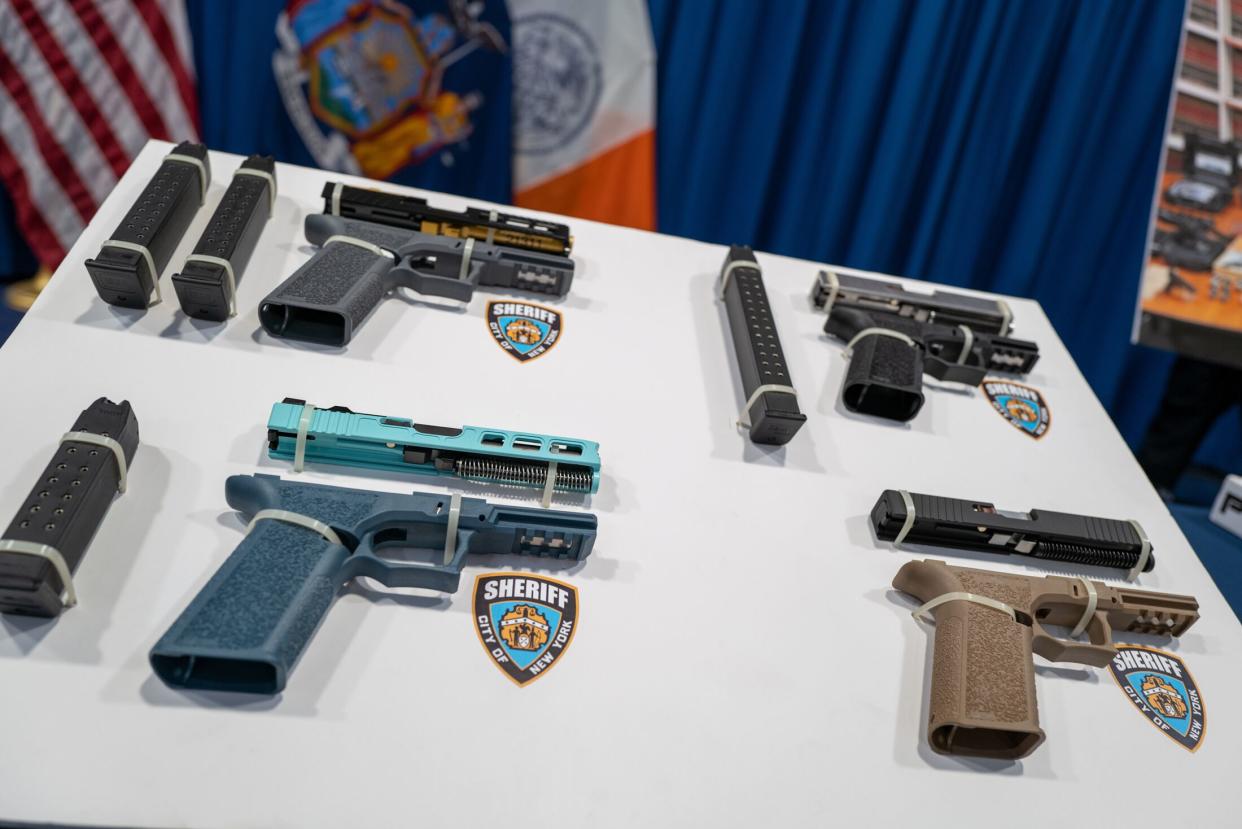Supreme Court Will Review Biden Administration ‘Ghost Gun’ Rule

(Bloomberg) -- The US Supreme Court agreed to decide whether President Joe Biden’s administration can regulate build-at-home “ghost gun” kits, adding to a growing list of firearms cases on the high court’s agenda.
Most Read from Bloomberg
Trump Has Only $6.8 Million for Legal Fees With Trial Underway
Billionaire Pinaults Fight to Pull Gucci Off the Discount Rack
Russians Transform Dubai as They Flee Putin’s War: Photo Essay
The justices will review a federal appeals court’s conclusion that a 1968 US gun-control law doesn’t cover kits. The ruling struck down a 2022 Bureau of Alcohol, Tobacco, Firearms and Explosives regulation, though the Supreme Court later said the rule could stay in effect during the legal fight.
The administration says the ATF rule is needed to stem a flood of untraceable weapons, many of them sold online. The regulation subjects gun kits to the same requirements as fully assembled firearms, meaning dealers must include serial numbers, conduct background checks and keep records of transactions.
US Solicitor General Elizabeth Prelogar told the justices the decision by the 5th US Circuit Court of Appeals would effectively nullify key parts of the 1968 Gun Control Act.
“Anyone could buy a kit online and assemble a fully functional gun in minutes — no background check, records, or serial number required,” Prelogar argued. “The result would be a flood of untraceable ghost guns into our nation’s communities, endangering the public and thwarting law-enforcement efforts to solve violent crimes.”
The case bears similarities to a pending fight over ATF’s criminal ban on bump stocks, the devices that make a semiautomatic rifle fire as rapidly as a machine gun. The justices are also considering the constitutionality of a federal law outlawing gun possession by people who are bound by domestic violence restraining orders.
The new case will be part of the court’s 2024-25 term, which starts in October.
A collection of manufacturers and gun-rights supporters is challenging the regulation. The opponents say the administration is trying to change a 50-year-old legal understanding and put kit manufacturers and dealers out of business.
“The target of ATF’s new regulation was the industry that had arisen to cater to law-abiding citizens making their own firearms,” challengers led by Texas resident Jennifer VanDerStok argued in court papers.
The Gun Control Act defines a “firearm” to include a weapon that “may readily be converted to expel a projectile by the action of an explosive,” as well as “the frame or receiver of any such weapon.” The frame or receiver is the part of a gun that houses the firing mechanism and other components.
The administration says “ghost gun” kits meet that definition because a person with basic tools can convert them into a fully function pistol in as little as 21 minutes. The challengers counter that the kits don’t come with fully assembled frames or receivers, putting them outside the law’s ambit.
Prelogar said almost 14,000 ghost guns were recovered by law enforcement officers and reported to ATF during a five-month period last year.
The case is Garland v. VanDerStok, 23-852.
Most Read from Bloomberg Businessweek
How a Massive Hack of Psychotherapy Records Revealed a Nation’s Secrets
A Hedge Fund Billionaire’s Cash Helped Fund a ‘Predatory’ Lender
What Really Happens When You Trade In an iPhone at the Apple Store
Rents Are the Fed’s ‘Biggest Stumbling Block’ in Taming US Inflation
©2024 Bloomberg L.P.



